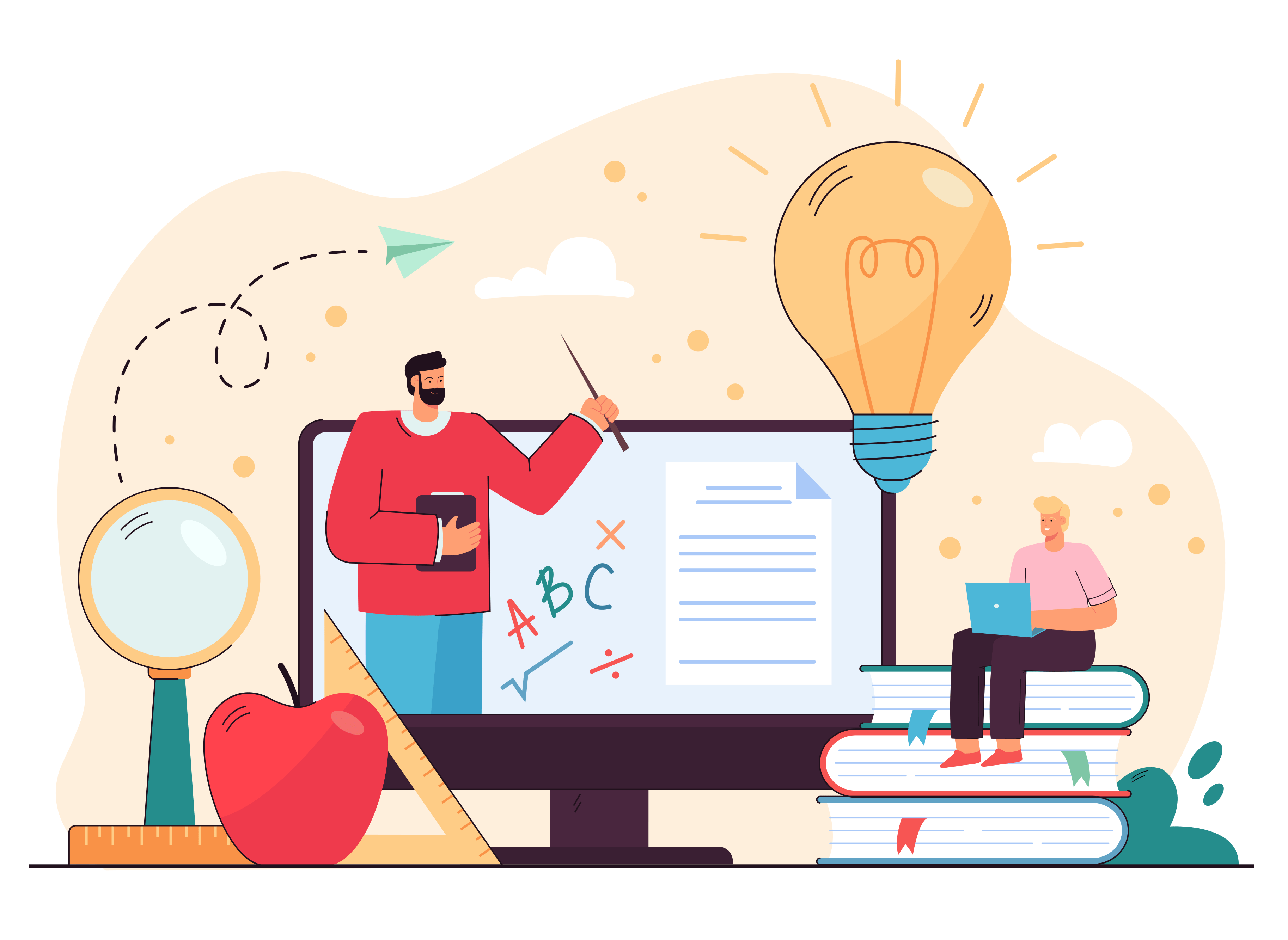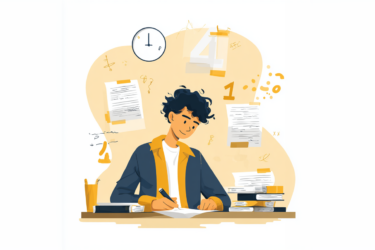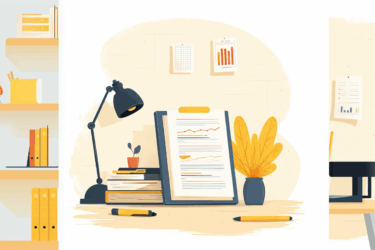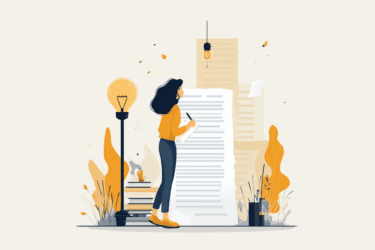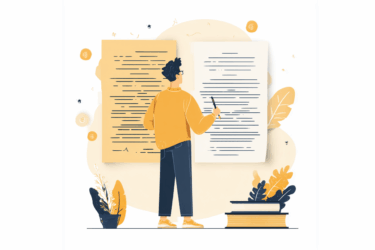One needs to study millions of resources and reflect on other opinions to form personal beliefs. That is the whole idea of education – stimulating one to think critically and express their ideas clearly. In this concept, committing a mistake is no crime. What is a real offense is plagiarism.
Protecting academic integrity, teachers nowadays don’t approve the assignment without an originality report. Moreover, educational institutions implement checking for plagiarism as an obligatory standard.
How often do teachers check homework for plagiarism?
Due to the paramount importance of honesty and originality, plagiarism-checking is part of the teacher’s routine. In some cases, experienced educators can identify copied work without any tools. However, most use plagiarism detector tools like PlagiarismCheck.org, which can scan multiple assignments simultaneously and produce comprehensive reports within a few moments. Furthermore, the software integrates with learning management systems like Moodle, Canvas, and Google Classroom, incorporating similarity detection into the learning process. PlagiarismCheck.org can even scan Quizzes and Discussions for plagiarism and AI presence!
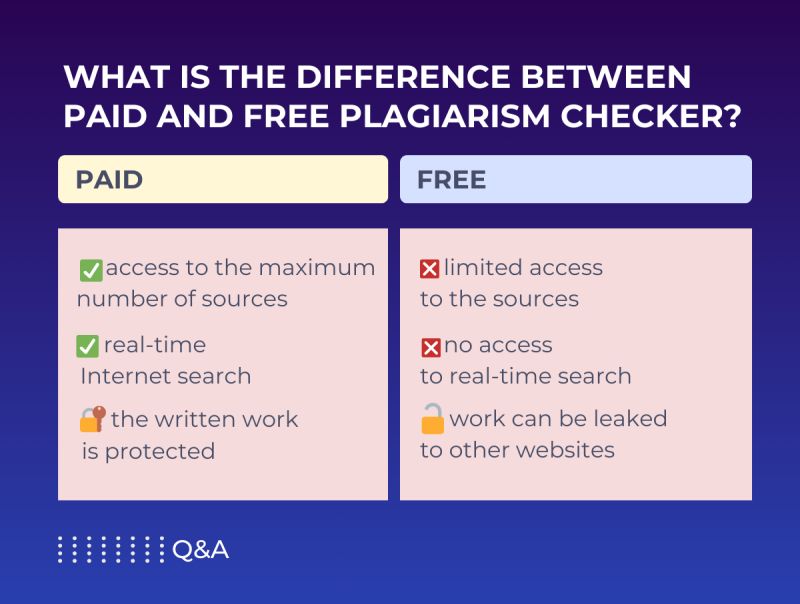
How do professors know if you plagiarized or not?
Originality checkers not only compare your homework assignment to various resources and show all the matching parts. AI-based tools like PlagiarismCheck.org indicate even the tricky attempts to cheat: the detector highlights words substituted with synonyms or poorly paraphrased sentences.
Plagchecking software provides a report with links to the sources where matches have been found so the professor can compare them to the paper.
Furthermore, a custom database allows the teachers to upload their own papers. It means the similarity checker can consider not only the Internet or specific academic resources but also the fellow students’ assignments, indicating the copying from each other.
Beware of unintended plagiarism: even when writing the text from scratch, we happen to repeat someone’s ideas. Unfortunately, it is still considered plagiarism. So, it is always better to scan the text for similarities to eliminate possible appropriation.
What are the consequences of plagiarism?
Students may not realize that plagiarism consequences in college go far beyond the grades. Furthermore, academic dishonesty affects, first and foremost, the cheater. Here are some examples of the aftermath entailed by copying someone else’s writing.
Weaker Immune System
David Leonhardt,
the founder of THGM professional writing service and the author of two books on personal effectiveness: “Climb Your Stairway to Heaven” and “The Get Happy Workbook.”
You can never go back and own what you write.
You can raise expectations that you can’t meet.
Your mirror will punish you.
Your immune system will be weaker from either A) the stress of the guilt, B) the fear of getting caught, or C) both.
You might someday need a security clearance, and guess what can crop up long after you’ve forgotten about it.
Reputation Loss
David C. Berliner
David C. Berliner is Regents’ Professor of Education Emeritus at Arizona State University, a member of the National Academy of Education and the International Academy of Education.
Assumption by others that some knowledge is possessed by the plagiarizer.
I had a chunk of one of my published papers lifted out and used in a doctoral thesis at a Christian school. Aside from the moral issues, which are many, there is the belief that this thief of intellectual property possesses knowledge about a particular domain of knowledge, and she does not.
So, she masquerades as an expert in a field in which she does not possess deep knowledge. Deep knowledge is a lot different than some knowledge that can be parroted back because one stole it.
Phil Turner,
an educator and blogger who taught science and chemistry in two schools in Wigan and St Helens from 1975 to 2003. Phil’s website: bizzrepublic.com
Plagiarism causes a loss of reputation – reputation is everything, and any loss is something to worry about. Reputation is the currency upon which your fortune will be built – It is the main criteria people will use to judge you and your work. Only a good reputation will allow you to earn a living.
Camile Clarke,
a Geography Teacher at a high school in Jamaica. She teaches grades 9-11, where grade 11 students are required to do projects where sources must be cited in a bibliography.
The unobvious consequence, in my opinion, is that the students get a bad reputation (how they are viewed by teachers) because this behavior tends to be portrayed in multiple subject areas. Teachers do talk about their students’ work at times, and at this point, habitual plagiarizers are highlighted. We tend to be somewhat lenient with students who plagiarize mistakenly because they are learning about the concept for the first time. Habitually plagiarising, even after being corrected or in multiple subject areas, leads to this view.
Monetary Theft From the Author
Chad Morris
Chad is an English teacher with a solid experience in writing. His 15+ years of experience in trading financial products have been reflected in the book on growth investing. Also, Chad works with ETF’s, Forex, annuities, mutual funds, ETN’s, and real estate.
Plagiarism is ultimately a form of theft. It’s not just academic deceit. A book that has been lifted from one author and sold as the material of another is a form of monetary theft. It steals from the true author so that the plagiarizer can make an easy dollar. Although typically viewed as academically dishonest, plagiarism at the cash register is nothing else but an economic crime.
Degradation
Ana Marković,
an English teacher and translator/interpreter, PR, ex-journalist, M.A. in Religious Studies (interdisciplinary)
If you ask me, I rest assured that it is always just a matter of time and especially of our intertwined modern world when all the consequences of plagiarism would be fully perceived, felt or present. However, at least initially, the most unobvious consequence of plagiarism is a long-term one and that would be the distortion of moral and deterioration of human spirit, wisdom, mind and potential. To be inspired by knowledge of other people, that is to say, richness and depth of universal mind personified in an individual human soul/s, is the path toward divine level of existence and progress. If not inspired but only ready to use the existing knowledge pretending it is our own achievement, it means corruption of our soul, no development and/or decrease of progress sooner or later.
Smitha Muran,
an enthusiastic teacher and writer with a very sophisticated view of the education system in general.
An oft-neglected but serious consequence of plagiarism is suppression of “idea”. The negative ramifications of plagiarism transcend the realms of originality and collectively inhibit the pursuit of “an idea”, by enclosing the boundaries of imagination and stripping the zeal towards innovation. This results in not just an isolationist attitude on the part of the original thinker but lethargic contentment among the cheats, both of which eventually trickle down through generations where the desire for perfection is discarded in favor of a spoonfed iteration, and the concept of “idea” spirals down the inevitable path of monotony and mediocrity.
Nancy Meshkoff,
English teacher and trainer, writer and editor.
When you plagiarize, you lose the chance to gain skills that aren’t evident to you at the time. When you’re assigned to write a paper on, say, religion in ancient Rome, you might be correct in saying that you won’t need that specific info in later life. But what you will also lack are the skills in researching, handling varied or contradictory information, deriving a conclusion, and expressing it well. Those things you will need in later life. You don’t always see what you’re gaining while you’re gaining it.
Asemine Lijazi Ahmed,
Professor of English Language and Literature.
Everyone looks for the consequences that plagiarism can bring in people’s job, education or academic career. But, in my opinion one of the main consequence of plagiarism is that people who employ in it harm themselves. In order to make a good writing or research paper one needs a good range of skills like choosing well-suited citations, taking precise notes, classifying sources, interpretation skills, and acknowledging others for their contributions. Those who plagiarize will never learn these skills and life duties may be tough without them which means that one harms himself more than others by plagiarizing.
Decreased Creativity
Viktoria Hristova,
a qualified English teacher, translator, editor, CELTA.
One of the consequences of plagiarism I can think of is the potential adverse effect it may have on the author. It depends on the type of product of course, but if a person spends much energy to create something and then it’s been plagiarized, this could make the author discouraged. If this happens to a talented author and he or she decides to stop creating new products, then this will be a great loss for the whole mankind.
I would call plagiarism a creativity killer. People who plagiarize look for the easy way to success. However, we all know that good things cannot be achieved easily. If you write articles and plagiarize, you can never be a good journalist. If you are a singer and plagiarize, you will remain a middling singer. If one wants to be a success, they need to put some efforts and be innovators. They may have a lot of failures but at least they will have the chance to succeed and do something meaningful.
Melvina Brandau,
Assistant Professor of Nursing and Outstanding Teaching Award Nominee.
The most covert consequence to plagiarism is the disservice it affords to the plagiarizer. Those who plagiarize are not only taking credit for the hard work of another person, but they are not giving him or herself the opportunity to rise up to the challenge of creating their own work.
Meredith Granger,
holds a Bachelor’s degree in English language and Literature with Education. She is qualified / registered as a teacher with the Ministry of Education.
The student fails to really develop his / her mind regarding the subject because the mind does not get to grapple with the ideas or concepts presented in a process that if done properly, would produce independent and original thought on the subject. Thus, it promotes dullness and demonstrates that the individual is severely lacking in critical and creative thinking skills.
Anna Gratz Cockerille
An editor at Heinemann Publishing, Anna Gratz Cockerille also writes for a variety of blogs and journals. She is a former teacher of K-8 schoolers in Australia, Honduras, and New Zealand, consulting in schools today and helping them reach academic goals. Anna’s website: twowritingteachers.org
One real shame about plagiarism is that it shows that students don’t value their own thinking. So, one unobvious consequence is that when students plagiarize, what they are not doing is learning to articulate, explore, and defend their own ideas.
Weakened Educational Community
Rosemary Edmonds,
Educational Consultant and Leading English Teacher
Plagiarism leads to a narrowing of academic debate and opinion. By copying other people’s arguments plagiarists are failing to put forward their own views on academic issues. Their personal perspectives and understanding of an argument are lost. This means that their contribution to academic debate is lost. Through academic debate people are pushed to examine and develop their academic thinking in response to the contribution of others. If this debate is limited to a few well-constructed but unoriginal positions this broadening and deepening may be lost and the educational community, as a whole, weakened.
Broken Trust Between Teachers and Students
David Moadel
David Moadel is an English Composition Professor at a local college in South Florida, writer, and inverstor.
The least obvious consequence of plagiarism is the broken trust between the teacher and the students. When teachers assign an essay, they are placing faith in students and trusting that they will work diligently and submit an original piece of work. Students who plagiarize are breaking that bond of trust and fostering feelings of suspicion and doubt in the mind of the teacher. Broken trust is difficult to fix, and the feelings of betrayal can be hurtful and persistent.
While fostering each student’s individuality, any seasoned educator will admit that certain types of personalities are present in any class. Knowing them and finding a unique approach to each of them may be one of the most valuable keys to successful teaching.
Representing AI and plagiarism checker and advocating original writing, we believe that a balance between celebrating each student’s individuality and developing some methods based on the learners’ types is crucial.

Consequences of plagiarism in business and life
As we see, according to educators, academic dishonesty entails a comprehensive effect on life and work. Without proper originality standards established and an independent mindset fostered people continue to copy someone else’s ideas instead of fulfilling their own.
Not even mentioning the perks of creative self-realization, the consequences of plagiarism in business alone can be catastrophic. The impact of cheating in the academic environment applies to life outside of the university – it is impossible to build a reputable company based on stealing and lying. Moreover, here come the legal consequences of plagiarism, as copyright violation is considered intellectual theft, and the plagiarizer can be sued in court.
The good news is the educational system is crafted to give an understanding of the subtle border between plagiarism and inspiration from someone’s work. Teachers encourage their students to boost their writing and reflection skills, provide proper citations, and develop original ideas and projects.
PlagiarismCheck.org comes in handy not only for teachers! Use plagiarism and AI content detector to check your assignment before submitting it, improve your writing, and stay on the safe side. Try it for free now.
